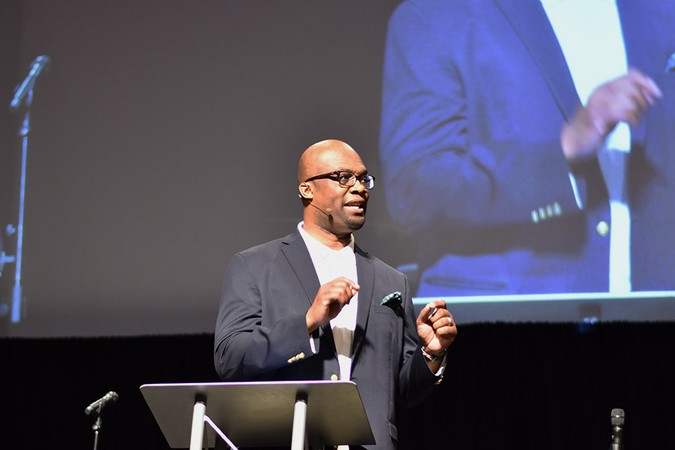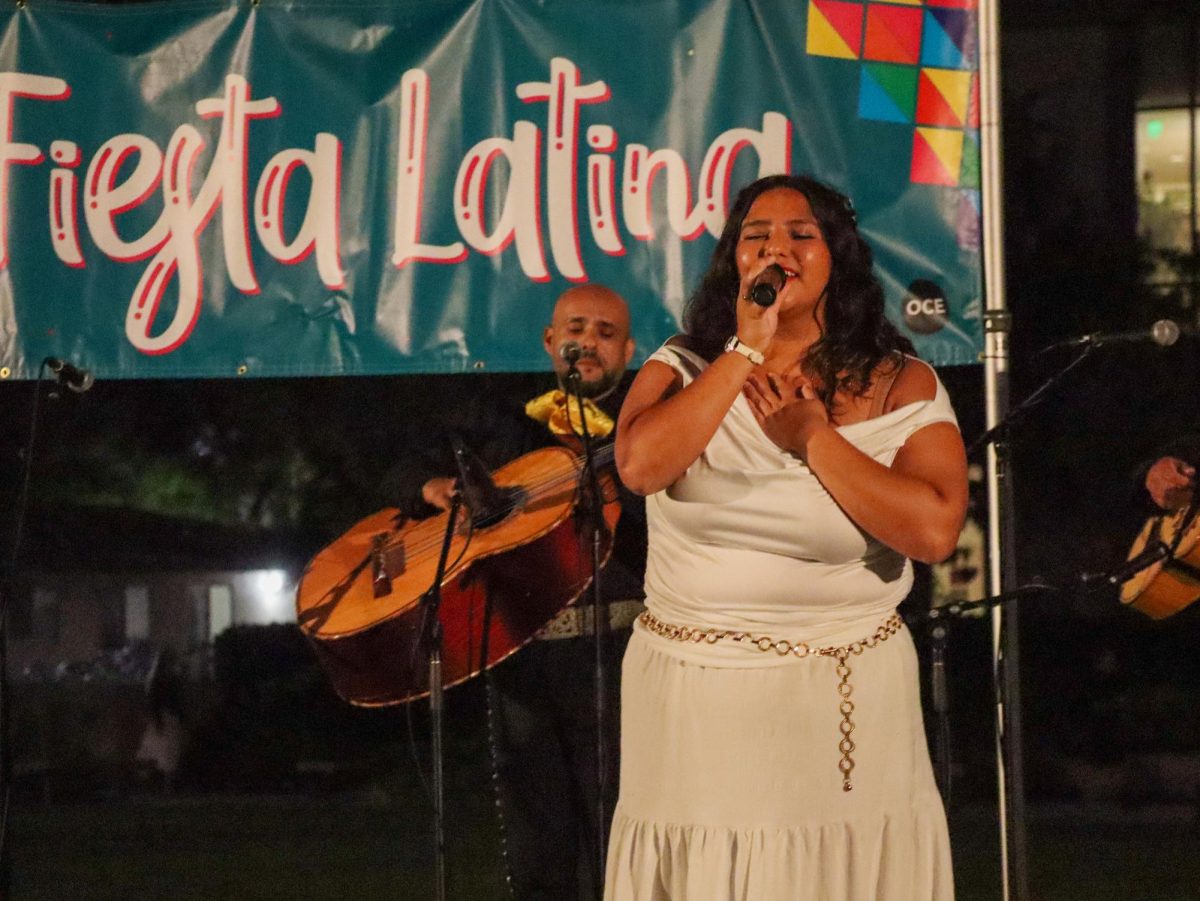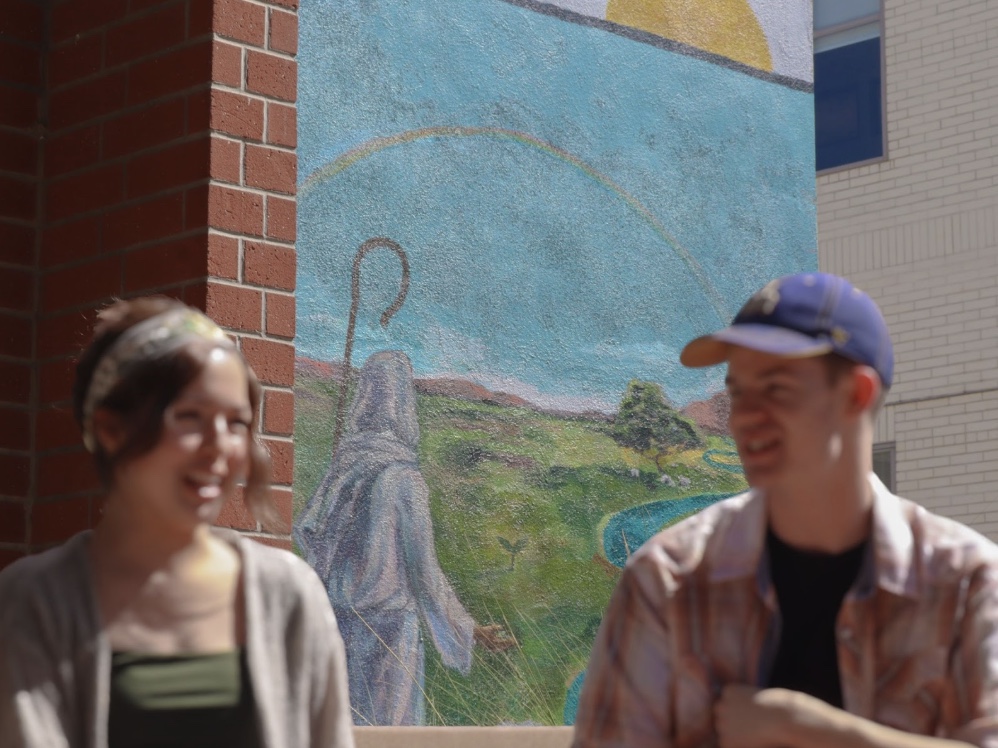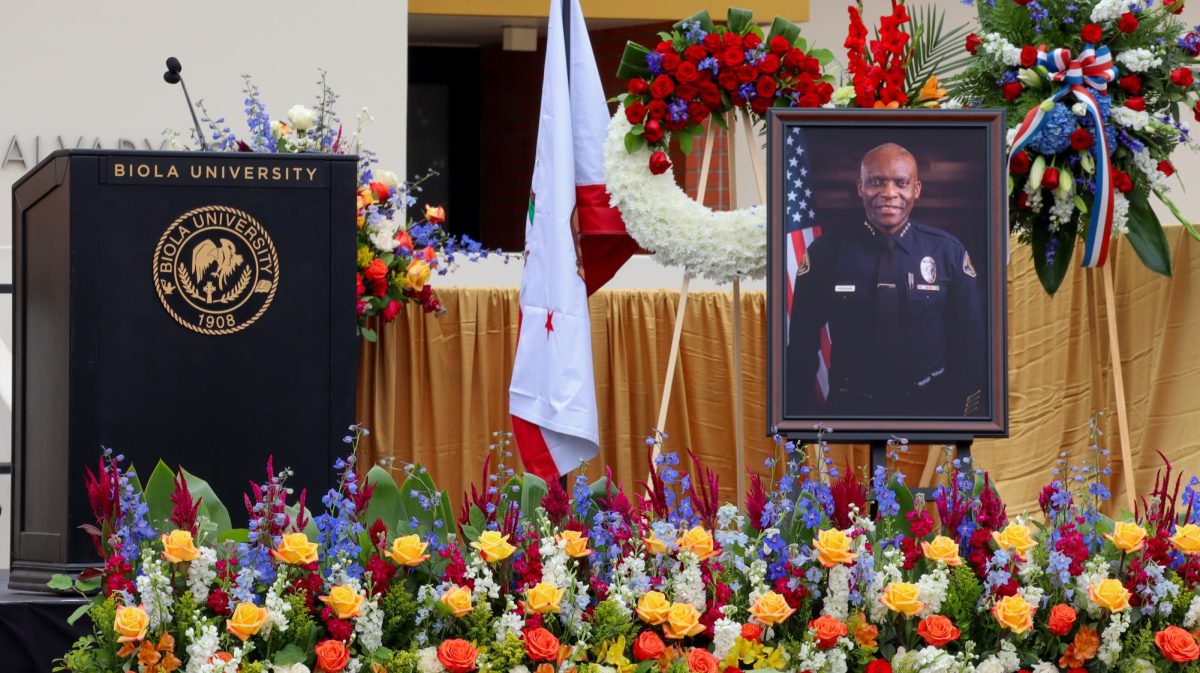In honor of the 50th anniversary of Martin Luther King Jr.’s death, Evangel Ministries pastor Chris Brooks’ opening remarks on how to change a nation set the tone for the university’s last Community Chapel of the semester.
KING AND THE TRUTH IN A DIVIDED NATION
“We don’t live to be liked, we live for what is right. We don’t live for the masses, we live for an audience of one. At the end of the day, what we are hoping for is to hear, ‘Well done my good and faithful servant,’’’ Brooks said to the audience.
The chapel dedicated its allotted time in celebrating King’s efforts to bring about unity and racial reconciliation among a divided nation.
For Brooks, King remained one of the most hated individuals in America until his assassination on April 4, 1968. But that did not hinder his impact on society nor his ability to speak the truth.
“The truth of the matter is that a divided church would never reach a divided world. Jesus demands unity,” Brooks said to the audience.
King knew the importance of unity and truth within the Church and often received criticism for his peaceful approach to conflict. He was a prophetic truth teller, and that served as the basis of what King stood for and the movement that he created, according to Brooks.
“He spoke the truth concerning the fact that reconciliation was not a luxury,” Brooks said to the audience. “And that unity across ethnic lines and class lines was not something that was in addition to the gospel or opposed to the gospel, it was at the very heart of the gospel.”
UNITY AND THE GOSPEL
Brooks continually directed the subject towards unity in the church as the beginning of racial reconciliation. Citing John 7, Brooks urged students and faculty to not forget the importance of unity in the body of Christ.
“Racial unity, ethnic unity to be more precise, is the central theme of the New Testament. You cannot properly read the New Testament without running up against the reality that Jesus calls a small band of Jerusalem brothers to spread out, not only in their own community but to go into the uttermost parts of the earth where he knew they would embrace diversity and cross-cultural challenges,” Brooks said to the audience.
Theology professor and alumni of Talbot School of Theology Leon Harris spoke to how Brooks positioned and described the role of the hurt versus the ones perpetrating the hurt, and how that, in the end, there must remain a call for unity as a church. Christians have a responsibility to maintain King’s message of reconciliation, according to Harris.
“I love the way he said, ‘Those who are perpetrating the hurt, they have some room for lamenting and change, but those who have been hurt can’t run away from them because we’re all part of the same church,’” Harris said.
MOVING FORWARD WITH A UNIFIED RESPONSE
Christian Smith, a graduate student in the Master of Divinity program, feels that shared leadership remains crucial to addressing the needs of unity. Smith believes that a positive step forward for the university should start with diversifying curriculum so that students can hear all voices.
“We don’t talk about the contributions from people of different ethnic groups that are not Caucasian or European or from conservative Christianity. So people ask, ‘Is Christianity a white man’s religion?’ And that is something that a lot of African-Americans students who are Christians often have to encounter,” Smith said.
Remembering the past is powerful, and society cannot move forward to a brighter day if it does not learn and hear from the pain of history, according to Brooks. In his final remarks, Brooks urged the quiet and still audience that unity and reconciliation is at the forefront of what made King so successful in bringing notoriety to the issues.
“Disunity anywhere is a threat to the gospel everywhere,” Brooks urged the audience. “If you want to go far, go together.”







